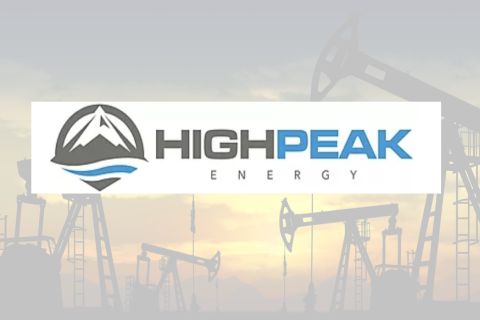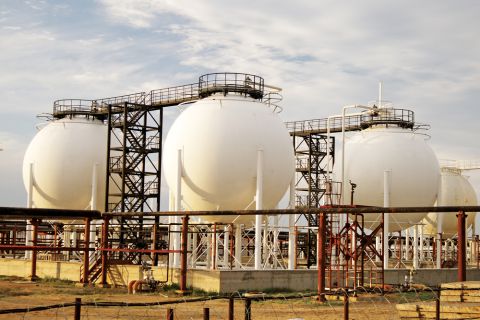When the bloom is off the rose, as it is now since the Enron-Andersen debacle and falling E&P stock prices, it's time to add a little fertilizer and water. On the other hand, we know that when natural gas drilling fades, that plants the seeds of the next supply crisis and better prices, as well as increased cash flow. In the meantime, as the Senate debates an energy bill, there has never been a better time to develop an industry-wide, coordinated campaign to promote the faded reputation of the oil, gas and power industry. The hardest thing for companies and investors to grasp is not that commodities move in cycles, but how fast the cycles turn these days. Twenty years ago, the ups and downs seemed to last two years or more-today, every six months we seem to face the next "crisis." That's why a more conservative stance on capital spending and debt loads is a good thing, even if investors have not yet warmed to that idea. Last month Anadarko Petroleum provided a good example. The Houston company significantly reduced its growth projections, saying the 10% increase in production it had hoped for this year will be delayed. Like many of its peers, in the second half of 2001 Anadarko laid down some rigs in response to low natural gas prices. Indeed, its 2002 capital budget is about half what it was last year. At first, investors had a predictable reaction and the stock fell about a dollar, but by the end of the day, it had recovered nicely. Among other things, this proves the importance of the backstop of a company's good reputation. Anadarko is one of the most-respected of the independents because it generally delivers what it says it will, and has served up consistently good financial results in good times and bad. Its investor relations program has consistently won awards over the years. The company went beyond announcing negative news to explain itself and the industry conditions it faces. Which brings me to reality. Due to a very warm winter, we have a lot of natural gas in storage, in fact, about 65% more than at this time in 2001. This means we are storing up trouble for the winter of 2002-2003, and summer 2003, once we get past what I fear will be disastrously low gas prices this spring and summer. The numbers show gas supply will be in jeopardy. The U.S. rig count has fallen from a peak of 1,293 last summer to less than 875 in mid- January, and drilling permits are sliding down the same slope. But it is helpful to remember that this count is still far above the trough we suffered in 1999, when the rig count fell to a somber 488. Either fully restored demand for gas, or abnormally low supplies of it, will right the situation. I vote for low gas supplies, but that scenario will take a while to play out, and in the meantime, we could see very low gas prices in the shoulder months of April through June. A price below $1.50 per thousand cubic feet could be tested. Several high-profile gas-fired generators such as Calpine, Mirant and PPL have announced they are backing off for awhile. According to Platts, projects with 84,976 megawatts of new power capacity have been deferred or canceled, although experts concede that far more projects had been planned than were needed. Salomon Smith Barney notes the same trend. "Over 2000 to 2003, we estimate a net addition of nearly 140,000 megawatts relative to an increase in peak demand of only 45,000 MW, well exceeding demand. We think an incremental overbuild of generating capacity is likely through at least 2H '03, when economic growth should catch up with the generating capacity that is coming online," it says. "We believe 2002 is a transition year for many generators as growth targets have been slashed and rationalization takes hold..." The same can be said for many E&P companies these days. I like the axiom of Tom Woods, natural gas guru and economist for Ziff Energy Group in Houston. A long-time analyst in the North American gas world, Woods says this: "If everybody believes your forecast, it's likely to be wrong, and if nobody believes it, it's likely to turn out to be correct." That sounds as likely as any other scenario. By the way, when one prunes a shrub back, that can facilitate new growth. It's happening already. A group of investors and entrepreneurs has formed the Resource Alliance Group of Houston (RAG), a non-profit formed to provide mentoring, access to funding sources, office space and computers, and professional help to any former Enron employee who wants to develop a new business. The alliance is open to any idea and is not industry-specific. Contact RAGroup.org.
Recommended Reading
For Sale, Again: Oily Northern Midland’s HighPeak Energy
2024-03-08 - The E&P is looking to hitch a ride on heated, renewed Permian Basin M&A.
Gibson, SOGDC to Develop Oil, Gas Facilities at Industrial Park in Malaysia
2024-02-14 - Sabah Oil & Gas Development Corp. says its collaboration with Gibson Shipbrokers will unlock energy availability for domestic and international markets.
E&P Highlights: Feb. 16, 2024
2024-02-19 - From the mobile offshore production unit arriving at the Nong Yao Field offshore Thailand to approval for the Castorone vessel to resume operations, below is a compilation of the latest headlines in the E&P space.
E&P Highlights: Feb. 26, 2024
2024-02-26 - Here’s a roundup of the latest E&P headlines, including interest in some projects changing hands and new contract awards.
CEO: Continental Adds Midland Basin Acreage, Explores Woodford, Barnett
2024-04-11 - Continental Resources is adding leases in Midland and Ector counties, Texas, as the private E&P hunts for drilling locations to explore. Continental is also testing deeper Barnett and Woodford intervals across its Permian footprint, CEO Doug Lawler said in an exclusive interview.





